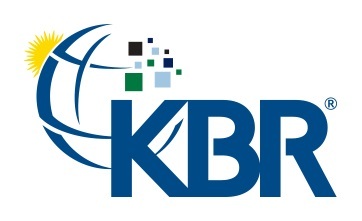KBR Awarded Multiple Technology Contracts by PKN ORLEN
KBR has secured technology licensing contracts with PKN ORLEN for its Solvent Deasphalting (SDA) and Residue Fluid Catalytic Cracking (RFCC) technologies, aimed at refining operations at PKN's Plock Refinery in Poland. The ROSE® technology will enhance feedstock quality, while the MAXOFIN℠ technology seeks to boost propylene production. These contracts demonstrate KBR's commitment to sustainable and energy-efficient refining solutions, marking a significant milestone in KBR's strategic partnerships within the industry.
- KBR awarded contracts for SDA and RFCC technologies by PKN ORLEN, indicating trust in KBR's expertise.
- ROSE technology delivers 50% energy savings compared to traditional methods.
- MAXOFIN technology enhances propylene production, tapping into new petrochemical feedstock markets.
- None.
Insights
Analyzing...
HOUSTON, July 27, 2021 /PRNewswire/ -- KBR, Inc. (NYSE: KBR) announced today that it has been awarded technology licensing contracts by PKN ORLEN (PKN) for KBR's leading Solvent Deasphalting (SDA) and Residue Fluid Catalytic Cracking (RFCC) technologies as part of PKN's Bottom-of-the-Barrel project for its Plock Refinery in Poland.
Under the terms of the contracts, KBR will provide technology licensing and basic engineering design for the SDA and RFCC units. Following a PKN ORLEN final investment decision, the SDA unit will be based on KBR's market-leading supercritical solvent recovery ROSE® technology and will help PKN ORLEN achieve its operating objectives, producing cleaner upgraded feedstock for the new RFCC unit. For the RFCC unit, KBR will provide its innovative, dual-riser MAXOFIN℠ technology, which uses conventional FCC operating conditions, KBR's proprietary catalyst additives and state-of-the-art equipment to help PKN ORLEN maximize propylene production from traditional FCC feedstocks and naphtha streams.
The combination of both proprietary technologies would allow PKN ORLEN to upgrade crude residue and naphtha streams to petrochemical feedstocks and clean transportation fuels to address market demands.
"Selection of KBR's energy-efficient and sustainable technologies by PKN represents continued trust in our industry-leading refinery technologies," said Doug Kelly, KBR President, Technology. "Our ROSE technology delivers
KBR's licensed process technology is found in more than half of the world's FCC units and a majority of residue upgrading units. The ROSE and MAXOFIN technologies reflect KBR's commitment to providing innovative technologies that give our customers a competitive edge in attractive markets.
About KBR
We deliver science, technology and engineering solutions to governments and companies around the world. KBR employs approximately 29,000 people worldwide with customers in more than 80 countries and operations in 40 countries.
KBR is proud to work with its customers across the globe to provide technology, value-added services, and long- term operations and maintenance services to ensure consistent delivery with predictable results. At KBR, We Deliver.
Visit www.kbr.com
Forward Looking Statement
The statements in this press release that are not historical statements, including statements regarding future financial performance, are forward-looking statements within the meaning of the federal securities laws. These statements are subject to numerous risks and uncertainties, many of which are beyond the company's control that could cause actual results to differ materially from the results expressed or implied by the statements. These risks and uncertainties include, but are not limited to: the significant adverse impacts on economic and market conditions of the COVID-19 pandemic; the company's ability to respond to the challenges and business disruption presented by the COVID-19 pandemic; the recent dislocation of the global energy market; the company's ability to realize cost savings and efficiencies relating to the streamlining of its Energy Solutions business; the company's ability to manage its liquidity; the company's ability to continue to generate anticipated levels of revenue, profits and cash flow from operations during the COVID-19 pandemic and any resulting economic downturn; the outcome of and the publicity surrounding audits and investigations by domestic and foreign government agencies and legislative bodies; potential adverse proceedings by such agencies and potential adverse results and consequences from such proceedings; the scope and enforceability of the company's indemnities from its former parent; changes in capital spending by the company's customers, including as a result of the COVID-19 pandemic; the company's ability to obtain contracts from existing and new customers and perform under those contracts; structural changes in the industries in which the company operates; escalating costs associated with and the performance of fixed-fee projects and the company's ability to control its cost under its contracts; claims negotiations and contract disputes with the company's customers; changes in the demand for or price of oil and/or natural gas; protection of intellectual property rights; compliance with environmental laws; changes in government regulations and regulatory requirements; compliance with laws related to income taxes; unsettled political conditions, war and the effects of terrorism; foreign operations and foreign exchange rates and controls; the development and installation of financial systems; increased competition for employees; the ability to successfully complete and integrate acquisitions; and operations of joint ventures, including joint ventures that are not controlled by the company.
KBR's most recently filed Annual Report on Form 10-K, any subsequent Form 10-Qs and 8-Ks, and other U.S. Securities and Exchange Commission filings discuss some of the important risk factors that KBR has identified that may affect the business, results of operations and financial condition. Except as required by law, KBR undertakes no obligation to revise or update publicly any forward-looking statements for any reason.
![]() View original content to download multimedia:https://www.prnewswire.com/news-releases/kbr-awarded-multiple-technology-contracts-by-pkn-orlen-301341584.html
View original content to download multimedia:https://www.prnewswire.com/news-releases/kbr-awarded-multiple-technology-contracts-by-pkn-orlen-301341584.html
SOURCE KBR, Inc.








